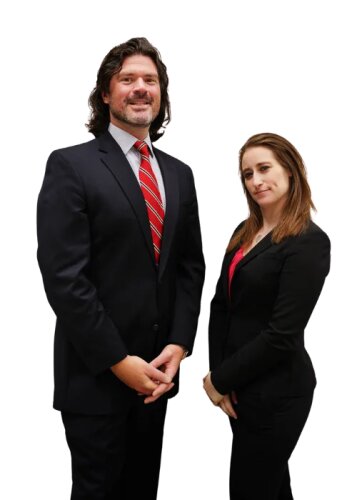Best Adoption Lawyers in New York City
Share your needs with us, get contacted by law firms.
Free. Takes 2 min.
Free Guide to Hiring a Family Lawyer
List of the best lawyers in New York City, United States
About Adoption Law in New York City, United States
Adoption in New York City operates under New York State law and is carried out through local entities such as the Administration for Children’s Services (ACS) for foster care adoptions. Finalization generally occurs in the Surrogate’s Court or Supreme Court, following court-approved parental rights termination and consent procedures. A home study by a licensed social worker is typically required, and all adoptions involve close oversight by the court system. This process creates a permanent legal relationship between the child and the adoptive parent or parents.
In New York City, adoption pathways include foster care to adoption, private agency adoptions, and private non agency or international routes. Each path has distinct steps, timelines, and costs, but all share the core elements of parental rights termination, consent, and court finalization. For robust guidance, consult official sources such as the New York City ACS and the New York State court system.
Adoption from foster care helps children find permanent homes and requires court approval to finalize the arrangement.Administration for Children's Services (ACS) - Adopt NYC
Key terms you will encounter include consent, termination of parental rights (TPR), home study, and final decree. Understanding these concepts early helps you plan and communicate with counsel effectively. For up-to-date procedures and requirements, refer to official guidance from the New York State Unified Court System and NYC agencies.
Useful references for foundational information include the New York State court system and ACS pages, which outline steps, eligibility, and typical timelines. These sources provide jurisdiction-specific context essential for NYC residents. See the links in the Additional Resources section for direct access.
Why You May Need a Lawyer
Adoption cases in New York City often involve complex legal, procedural, and welfare considerations. A solicitor or attorney can help you navigate court processes, understand parental rights issues, and coordinate with state and city agencies. Below are real-world scenarios common in NYC where legal counsel is essential.
- Contested consent and termination of parental rights. In a NYC case, one birth parent may contest TPR, delaying finalization and raising due process questions. An attorney can mount a focused petition, gather necessary evidence, and present compelling arguments to the surrogate or family court.
- Foster care to adoption with a legal guardian. When a child in NYC foster care is placed with prospective adoptive parents, counsel is needed to manage court filings, home studies, and potential subsidy negotiations with ACFS and the court.
- Interstate or international placement. If the child is moving from another state or country, you must comply with the ICPC process and federal and state requirements. An attorney ensures proper paperwork and timely approvals.
- Relatives seeking kinship or step-parent adoptions. In NYC, a relative adoption often involves unique consent issues and additional filings in the court system, requiring precise legal strategy.
- Open adoptions and contact arrangements. If you want to preserve ongoing contact with birth families, an attorney can draft or review legally binding open adoption agreements and ensure enforcement options.
- Special needs considerations and adoption subsidies. NYC families adopting children with special needs often pursue subsidies or services; a solicitor can negotiate and document these supports in court orders.
Local Laws Overview
New York adoption law relies on several state-level statutes and court rules, with practical execution in NYC through ACS and local courts. The guidance below names the primary legal frameworks that govern adoption proceedings in New York City.
- Domestic Relations Law Article 10 (Adoptions) - Governs the fundamental rules for adoptive relationships, consent requirements, and termination of parental rights in New York. This Article forms the backbone of private and agency adoptions statewide, including in NYC.
- Surrogate's Court Procedure Act (SCPA) - Sets forth procedures for finalizing adoptions in the appropriate Surrogate’s or Supreme Court proceedings, including petitions, notices, and consents required for final decrees.
- Family Court Act (FCA) and Related Rules - Addresses child welfare and the involvement of family court in foster care, guardianship, and adoption matters that affect NYC families, often in coordination with the SCPA and DRL provisions.
Recent trends in New York adoption practice emphasize timely court oversight, standardized home studies by licensed agencies, and cooperative coordination between ACS, OCFS, and the court system. For state-wide policies and NYC-specific implementations, consult OCFS and ACS resources. These sources explain how the system currently functions in practice and any changes affecting procedure or eligibility.
New York State emphasizes court oversight and standardized home studies to safeguard children while facilitating permanent placements.New York State Office of Children and Family Services (OCFS) - Adoption Resources
Frequently Asked Questions
What is the first step to start an adoption in NYC?
Begin by choosing a path (foster to adopt, private agency, or private placement). Contact an adoption attorney or a licensed agency to obtain an initial assessment and a plan.
How do I know if I need a lawyer for my NYC adoption?
Most NYC adoptions require legal representation for court filings, consent issues, and home studies. A lawyer helps prevent delays and protects your rights.
What is a home study and who conducts it in NYC?
A home study assesses your suitability to adopt. A licensed social worker or approved agency conducts it, and the report supports your petition to the court.
How long does an NYC adoption typically take from start to finish?
Private agency adoptions can take several months, while foster care adoptions may extend longer due to consent and TPR proceedings. Court scheduling also impacts timing.
Do I need parental rights termination in every NYC adoption?
Yes, except for certain relative or stepparent adoptions, you generally must obtain legal termination of parental rights before finalizing adoption.
What are typical costs for an NYC adoption lawyer?
Costs vary by path and complexity, including filing fees, home studies, and attorney fees. A consultation will give you a clear estimate of total costs.
Can NYC adoptions include open arrangements with birth families?
Yes, open adoptions are common in NYC and can be legally structured to specify ongoing contact with birth parents, subject to court approval.
How much influence does the court have in approving an adoption?
The court must approve the petition, ensure consent validity, and determine the best interests of the child before finalizing the adoption.
Do I need to be a resident of NYC to adopt in NYC?
No, you do not have to be a NYC resident, but you must comply with NYC and New York State procedures and may need to coordinate with NYC agencies for foster care options.
What documents should I gather before meeting a lawyer?
Gather your identification, birth certificates, marriage certificates if applicable, prior child custody orders, and any agency or court communications to speed up the process.
Is there a difference between private and agency adoptions in NYC?
Agency adoptions involve licensed agencies and structured processes, while private adoptions may rely more on private agreements and court filings with attorney support.
Can I adopt internationally from New York City?
International adoption requires additional steps, including immigration and consular processing, in coordination with a licensed attorney and U.S. state and federal authorities.
Additional Resources
- Administration for Children’s Services (ACS) - Adopt NYC - NYC city agency coordinating foster care, adoption services, and permanency planning for children in New York City. https://www1.nyc.gov/site/acs/index.page
- New York State Office of Children and Family Services (OCFS) - State agency overseeing adoption licensing, subsidies, and statewide adoption resources, with guidance for adoptive families. https://ocfs.ny.gov
- Child Welfare Information Gateway - Federal government resource with adoption process information, checklists, and federal guidelines relevant to New York families. https://www.childwelfare.gov
Next Steps
- Define your path to adoption in NYC by listing priorities (foster care, agency, or private placement) and desired timelines. This helps you select the right counsel early.
- Gather essential documents and financial information. Prepare copies of IDs, birth certificates, marriage licenses, and any prior custody orders.
- Consult an adoption attorney or a licensed adoption agency to assess eligibility and outline a plan with milestones and costs. Schedule at least two consultations.
- Engage your chosen legal counsel to begin the home study process and file the initial petition with the appropriate NYC court or agency. Expect a 4-8 week preparation window.
- Coordinate with ACS or the relevant agency for foster care placement, visits, and any required consent or TPR actions. Track progress weekly.
- Prepare for court hearings by compiling communication records, consent forms, and any evidence regarding parental rights. Attend all required proceedings with your attorney.
- Finalize the adoption in court, obtain the final decree, and obtain an amended birth certificate or other required documents as directed by the court. Plan for post-adoption services if needed.
Lawzana helps you find the best lawyers and law firms in New York City through a curated and pre-screened list of qualified legal professionals. Our platform offers rankings and detailed profiles of attorneys and law firms, allowing you to compare based on practice areas, including Adoption, experience, and client feedback.
Each profile includes a description of the firm's areas of practice, client reviews, team members and partners, year of establishment, spoken languages, office locations, contact information, social media presence, and any published articles or resources. Most firms on our platform speak English and are experienced in both local and international legal matters.
Get a quote from top-rated law firms in New York City, United States — quickly, securely, and without unnecessary hassle.
Disclaimer:
The information provided on this page is for general informational purposes only and does not constitute legal advice. While we strive to ensure the accuracy and relevance of the content, legal information may change over time, and interpretations of the law can vary. You should always consult with a qualified legal professional for advice specific to your situation.
We disclaim all liability for actions taken or not taken based on the content of this page. If you believe any information is incorrect or outdated, please contact us, and we will review and update it where appropriate.
















